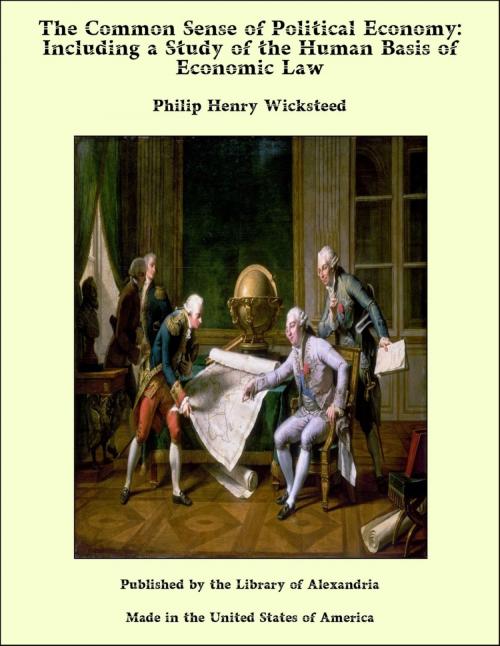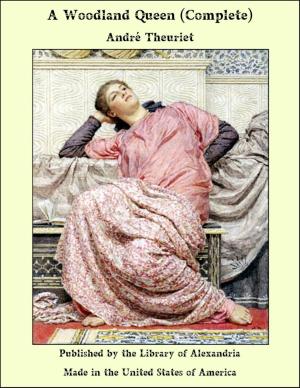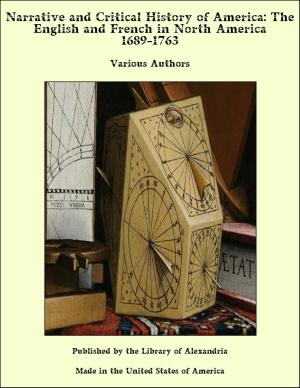The Common Sense of Political Economy: Including a Study of the Human Basis of Economic Law
Nonfiction, Religion & Spirituality, New Age, History, Fiction & Literature| Author: | Philip Henry Wicksteed | ISBN: | 9781465619259 |
| Publisher: | Library of Alexandria | Publication: | March 8, 2015 |
| Imprint: | Language: | English |
| Author: | Philip Henry Wicksteed |
| ISBN: | 9781465619259 |
| Publisher: | Library of Alexandria |
| Publication: | March 8, 2015 |
| Imprint: | |
| Language: | English |
Summary. This work is a study of the organisation of industry and commerce in its bearing upon social problems and upon human life. The derivation and the current use of the terms “Economy,” “Political Economy,” and “Economics” suggest that we should approach the problems of the industrial administration of resources from the field of domestic and personal administration to which we all have access. Every purchase being a virtual selection and involving a choice between alternatives is made in obedience to impulses and is guided by principles which are equally applicable to other acts of selection and choice. To understand them we must study the psychology of choice. The price of a thing is an indication of the range of alternatives open to the purchaser, and is a special case of “terms on which alternatives are offered to us.” We are constantly weighing apparently heterogeneous objects of desire against each other and selecting between them according to the terms on which we can secure them. All these things that we balance against and compare with each other, whether they can be had for money or not, may ideally be arranged on a scale of relative significance in our minds. “Economy” etymologically means the regulating or managing of a household, that is to say, the administration of the household affairs and resources. It describes a branch of activity. In current language “economy” means the administration of any kind of resources (time, thought, or money, for instance) in such a way as to secure their maximum efficiency for the purpose contemplated. It is administration with a minimum of waste. It describes not a branch but a characteristic of administrative activity. If we go on to analyse our conception of “waste,” we find it to be expenditure upon objects in excess of their worth, or loss and destruction of resources by mere thoughtlessness or negligence. And finally when we say that a thing is not “worth” what we expend upon it or devote to it, we mean that there is some alternative application of the resources in question, either actually or prospectively open to us, by which a more worthy, more extended, more important, or in general terms a more desired or more desirable object could have been accomplished by the outlay. All successful administration, then, consists in the purposeful selection between alternative applications of resources; and the ultimate value or significance of such success depends on the nature of the objects at which the administrator aims.
Summary. This work is a study of the organisation of industry and commerce in its bearing upon social problems and upon human life. The derivation and the current use of the terms “Economy,” “Political Economy,” and “Economics” suggest that we should approach the problems of the industrial administration of resources from the field of domestic and personal administration to which we all have access. Every purchase being a virtual selection and involving a choice between alternatives is made in obedience to impulses and is guided by principles which are equally applicable to other acts of selection and choice. To understand them we must study the psychology of choice. The price of a thing is an indication of the range of alternatives open to the purchaser, and is a special case of “terms on which alternatives are offered to us.” We are constantly weighing apparently heterogeneous objects of desire against each other and selecting between them according to the terms on which we can secure them. All these things that we balance against and compare with each other, whether they can be had for money or not, may ideally be arranged on a scale of relative significance in our minds. “Economy” etymologically means the regulating or managing of a household, that is to say, the administration of the household affairs and resources. It describes a branch of activity. In current language “economy” means the administration of any kind of resources (time, thought, or money, for instance) in such a way as to secure their maximum efficiency for the purpose contemplated. It is administration with a minimum of waste. It describes not a branch but a characteristic of administrative activity. If we go on to analyse our conception of “waste,” we find it to be expenditure upon objects in excess of their worth, or loss and destruction of resources by mere thoughtlessness or negligence. And finally when we say that a thing is not “worth” what we expend upon it or devote to it, we mean that there is some alternative application of the resources in question, either actually or prospectively open to us, by which a more worthy, more extended, more important, or in general terms a more desired or more desirable object could have been accomplished by the outlay. All successful administration, then, consists in the purposeful selection between alternative applications of resources; and the ultimate value or significance of such success depends on the nature of the objects at which the administrator aims.















